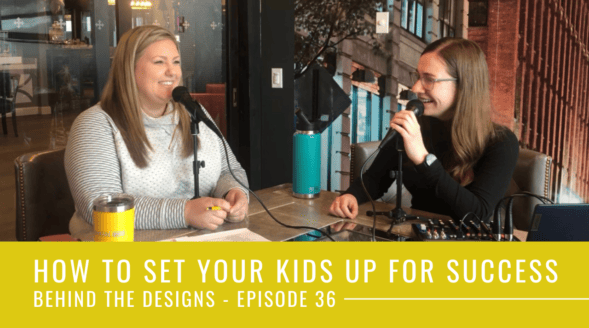Should Financial Lives Be Private?
by Michelle Smalenberger, CFP® / March 9, 2017Written by: Michelle Smalenberger, CFP®
There are a few topics in life that are so personal. And we often don’t talk about them with others, out in public and especially with family. These topics include politics, religion and money.
Yet, what are we missing out on? What lessons are we not able to teach and even learn ourselves? When we keep our finances private and never ask questions, how do we grow and handle money better in the future? And how do we ever pass these on to the next generation?
I want to focus on the third private topic we don’t talk about, money.
Having a young child of our own, we are always looking for “teachable moments.” We are also constantly answering the “why” questions.
So I want you to imagine scenarios: in this case, let’s use a young family as an example. One set of parents talk about money with their children. They often share their values and goals both in words and in actions. They have even shared their struggles to save or pay for something. In contrast, let’s imagine another set of parents that didn’t want to talk about it and never did. It was way too personal. It was too revealing. The parents were embarrassed about the choices that they made in the past and didn’t want to relive that time again, so it was never discussed. They were not happy with the life that they were living but did not want to analyze their situation in order to make the needed changes or start better habits.
What has your relationship with money looked like? Which one are you?
Some very healthy things can come from being willing to share the good, the bad and even the ugly experiences and life lessons learned. Sharing the struggles that we are currently working through, or have fought to overcome, and the priorities and habits that we put in place can be exactly what another person needs to hear.
Below are a few things that are shared when we open up to talk about money:
TRUST
I can think of a number of times we have been in the car watching for landmarks we could help Emma spot. We’ve driven past our bank where we’d point out the building and explain to her that that’s where Mommy and Daddy take their money. That’s where we deposit our paychecks. That’s where we save and withdraw money from, when needed. She’s learned that we trust the financial institution. They keep our money safe and make it accessible, as needed. And she has started to learn the importance that we put on savings.
LIMITS
We can remember the times we’ve taken her to the store and allowed her to pick out a toy. Here’s a $10 bill. You can either buy one large toy with that money or several toys. Or, you can save it until next time, teaching her that it’s a finite amount.
VALUE
Is what I buy going to last for years or days? Do you buy things that may help you learn a skill or meet a need? Or do you buy something that looks cool but in a week it will be old?
THOUGHTFULNESS
By sharing what you give to your local church and/or to a valuable nonprofit cause that makes an impact in your community, you are showing how to give back. You are teaching that what you earn is not only for you and your needs, but to help others who may need help.
LEGACY
Not every inheritance is financial. Sometimes we pass on intangibles like life lessons, values and goals.
COUNSEL
Get advice when you need it. Seek out those that are professional and have built a lot of knowledge and experience in the areas you need. You quickly realize there are areas that need to be thought about like insurance, taxes, investments or estate planning in order to protect and preserve your wealth.
Always remember, that others are watching your actions as well as listening to what you say. Sometimes it’s the people you don’t think are watching who are paying attention and impacted the most.
Ready to take the next step?
Schedule a quick call with our financial advisors.


